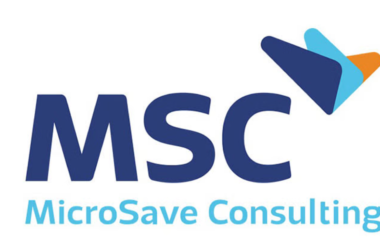In the constantly changing and competitive landscape of franchise businesses, the ability to build a resilient and enduring venture is a top priority. To navigate economic uncertainties successfully, franchise owners can learn valuable lessons from established, multi-generational businesses that have demonstrated the tenacity to withstand the test of time. In this article, we will delve into five key strategies employed by these durable businesses, providing valuable insights for franchise entrepreneurs.
1. Building Community
A common pattern observed in long-standing businesses is their ability to build a strong community economy around their brand. This includes philanthropic giving communities, user group communities, and company communities. Companies like Microsoft, Atlassian, and Salesforce have harnessed the power of community engagement to win the hearts and minds of their customers. By wrapping their business models around community-building, these businesses have achieved long-term success.
This strategy not only enhances customer loyalty but also fosters a sense of belonging and involvement. For franchise owners, investing in community-building initiatives can create a dedicated customer base and boost brand recognition, making the business more resilient in the face of economic challenges.
2. Giving Back
The DNA of a durable business is one that not only seeks profit but also contributes to the greater good. According to a study from Harvard Business Review, businesses with a strong and clear purpose that aligns with supporting the broader community experienced substantial growth. This is not limited to having a Corporate Social Responsibility (CSR) program; it involves actively giving back from the inception of the business.
Successful businesses donate profits, products, equity, and employee time as part of their ongoing commitment to giving back. This long-term dedication to making a positive impact can enhance the business’s reputation and create a solid foundation for resilience.
3. Establishing a Partnership Economy
Durable businesses seek partnerships with companies of all sizes, viewing them as long-term viable partners. These partners can help expand the Total Addressable Market (TAM), open doors to new verticals, and facilitate the localization of products and services. Evaluating the cultural fit and the value a partner brings to the organization is crucial. The goal is to build partnerships that align with the long-term vision of the business.
By strategically forming partnerships, franchise businesses can diversify their offerings, extend their reach, and access additional resources, making them better equipped to withstand economic fluctuations.
4. Building a Jobs Economy
Established businesses like Microsoft, Atlassian, Oracle, and Salesforce have created a jobs economy around their products by offering certifications to end-users. Becoming certified in a specific product means that users have a competitive advantage in their career paths, increasing the likelihood of job opportunities related to that product. This alignment between skills and career advancement often results in repeat sales of the company’s products.
For franchise businesses, offering certification programs can not only boost brand loyalty but also create a self-sustaining ecosystem where customers, skilled in the franchise’s offerings, contribute to its growth and sustainability.
5. Growing a Marketplace Economy
In today’s business landscape, app marketplaces have become thriving ecosystems of software solutions. Over half of the top 100 SaaS platforms have their own app marketplaces. These marketplaces enable SaaS platforms to enhance their capabilities by incorporating innovative extensions from marketplace vendors. This enables them to meet the diverse needs of knowledge workers.
For franchise businesses, adopting a marketplace economy approach can result in the expansion of their product or service offerings and cater to a wider audience. By allowing third-party vendors to offer complementary products or services through their marketplace, franchise businesses can leverage innovation and extend their market reach.
In conclusion, building a durable franchise business involves careful planning, consistent commitment, and a willingness to adapt to changing market conditions. By embracing the strategies employed by successful, multi-generational businesses, franchise owners can increase their resilience and prepare for long-term success.
The journey to building a durable business may be likened to a video game, with each challenge and level requiring a unique set of skills and strategies. The commitment to long-term success, the discipline to make data-driven growth decisions, and the willingness to learn from predecessors are all vital elements in the quest for a resilient franchise business.
In an ever-evolving economic landscape, the ability to build a durable and resilient franchise business can be likened to mastering a video game – it requires dedication, strategic thinking, and the ability to adapt to changing circumstances. By implementing the five strategies outlined above, franchise owners can strengthen their businesses and increase their chances of withstanding economic challenges and achieving long-term success. Just as in a video game, building a durable business is a marathon, not a sprint, and the journey is filled with challenges and rewards. So, embrace these strategies, level up your franchise, and navigate the path to enduring success.










